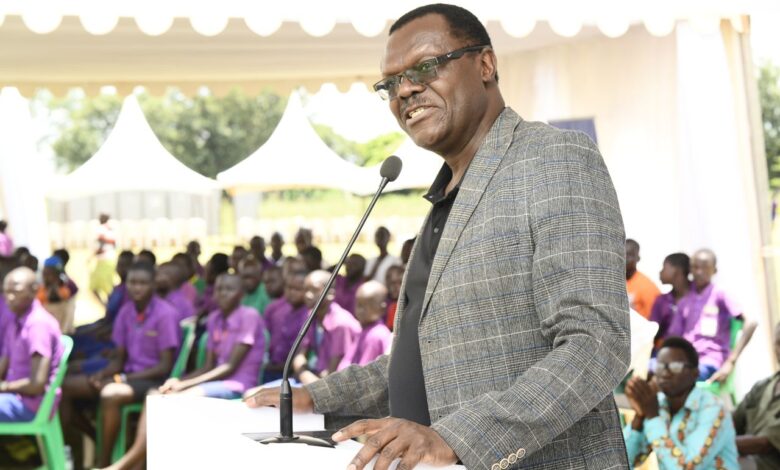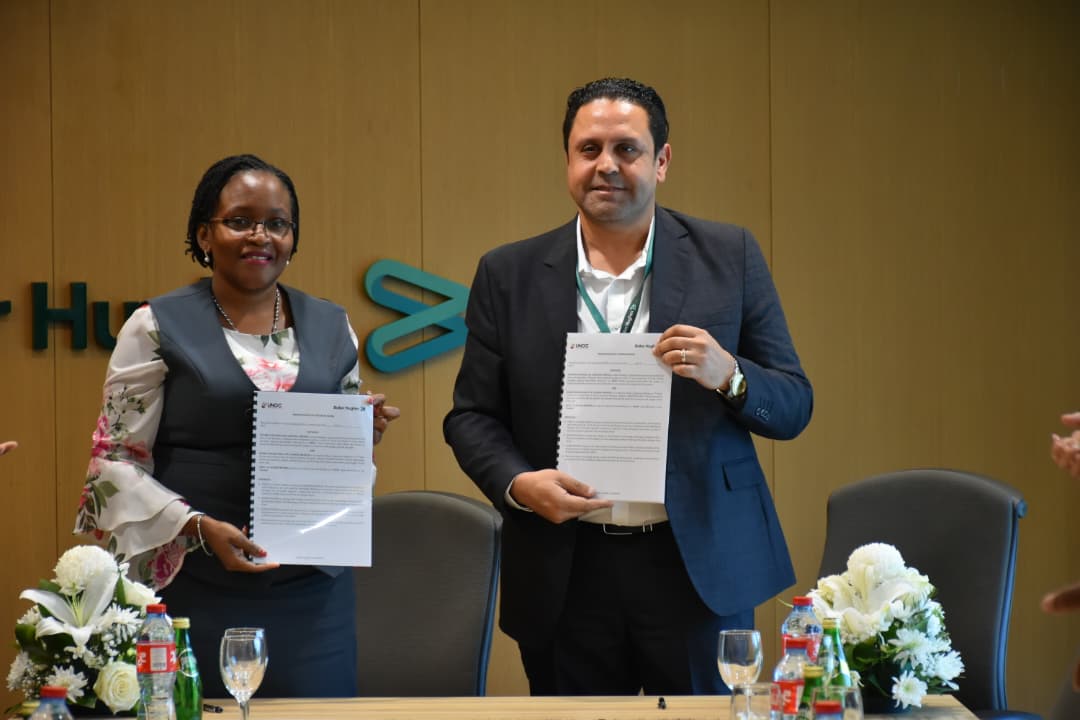NSSF unveils initiative to attract informal sector workers
By targeting this group, NSSF aims to reverse a trend where only 11 percent of Uganda's working population currently saves with the Fund. This new project aims to bridge that gap, starting with over 10,780 new members already registered.

In an effort to improve Uganda’s savings culture and enhance economic security for informal sector workers, the National Social Security Fund (NSSF) has launched a livelihood support project aimed at transforming how the country’s informal workforce saves for the future.
The project, currently piloted in Otuke, Kayunga, Sheema, and Mitooma districts, seeks to increase membership in the Fund while offering a fresh approach to financial empowerment through skills development and productivity enhancement.
What makes this initiative stand out is its focus on the informal sector—Uganda’s largest but least financially secure workforce. The informal economy comprises small-scale farmers, traders, and other self-employed individuals who often lack access to formal saving schemes.
By targeting this group, NSSF aims to reverse a trend where only 11 percent of Uganda’s working population currently saves with the Fund. This new project aims to bridge that gap, starting with over 10,780 new members already registered.
The heart of the initiative lies in NSSF’s engagement with “Livelihood Communities,” which are pre-existing social and economic groups that bring people together for mutual benefit, such as savings groups or cooperatives.
By working with these communities, the NSSF’s project offers more than just access to saving plans—it provides members with the tools to improve their economic situation. These include training in new skills, access to productive assets, and markets for their goods and services.
Speaking about the project’s unique approach, Patrick Ayota, Managing Director of NSSF, emphasized its holistic focus:
“We’re not just asking people to save; we’re offering them the tools to build a better future for themselves and their families. It’s about adding value to their livelihoods, increasing their productivity, and helping them access bigger markets.”
Ayota’s vision goes beyond the traditional role of a savings scheme. By fostering economic empowerment through education and productivity, the NSSF is positioning itself as a key player in Uganda’s broader development efforts.
Women Leading the Charge for Financial Inclusion
A significant aspect of the initiative is its focus on empowering women. In Otuke district, more than 6,000 women have joined the initiative under the Dero Amon saving scheme. Despite the modest amounts being saved—some as little as 3,000 shillings—the impact of this effort is profound. The women have not only started saving but are also receiving practical tools, such as hand hoes, to improve their agricultural productivity.
Ayota applauded the women’s commitment to saving:
“These women are embracing the culture of saving with incredible determination. Their trust in NSSF shows that we are on the right track. Every shilling saved is a step toward financial independence, and we are proud to support their journey.”
For these women, saving is not just about securing their financial future—it’s about gaining the economic power to make decisions and improve their families’ quality of life. Paul Omara, the Otuke Member of Parliament and founder of the Dero Amon saving scheme, underscored the importance of empowering women:
“When you empower a woman, you empower a whole community. Women are key to the development of our nation. Through this saving scheme, they are becoming more financially resilient, which will have a ripple effect on their families and communities.”
A Strategic Plan for Uganda’s Future
The broader goal of the NSSF’s livelihood project is ambitious: to recruit at least 50% of Uganda’s working population by 2035. While this may seem challenging, the pilot’s success in the initial districts shows that there is significant potential. With over 10,000 new members already saving, the project is gaining momentum.
NSSF Board Chairperson David Ogong praised the Fund for its innovative approach to recruiting informal workers:
“The informal sector has always been difficult to reach, but with this project, we are breaking new ground. We are not only recruiting people into the Fund, but we are also giving them the resources and knowledge to improve their livelihoods. This is the kind of innovation that will change Uganda’s savings culture.”
Ogong also encouraged Ugandans to embrace a long-term mindset when it comes to saving:
“Saving isn’t just about what you need today; it’s about planning for tomorrow. We need to shift from a mindset of hand-to-mouth existence to one of strategic financial planning. With initiatives like this, I believe we can transform Uganda’s savings culture.”
Empowerment as a Development Strategy
The NSSF project aligns economic security with broader development goals, particularly in empowering women and informal workers. By offering access to savings, skills training, and market opportunities, the initiative is providing individuals with the means to uplift themselves financially.
Paul Omara stressed that such initiatives could lead to wider national development:
“When women and informal workers are given the opportunity to save and grow their income, the entire country benefits. We will see improved livelihoods, stronger communities, and ultimately, a more prosperous Uganda.”
The success of the NSSF’s livelihood support project lies not only in the number of new members recruited but also in its potential to shift Uganda’s saving culture. In a country where immediate needs often overshadow long-term financial planning, initiatives like this offer a pathway toward financial resilience.
By focusing on practical solutions—like tools for agriculture and skills for entrepreneurship—the NSSF is offering more than just a savings scheme; it is offering a lifeline.
As Patrick Ayota aptly put it, “This is more than just saving for retirement—it’s about transforming lives today.”
With its focus on the informal sector, women’s empowerment, and community-driven solutions, the NSSF’s livelihood project could be a game-changer for Uganda’s future. It has the potential to create lasting change by helping people see the value of saving not just for emergencies but for long-term economic security and growth.







